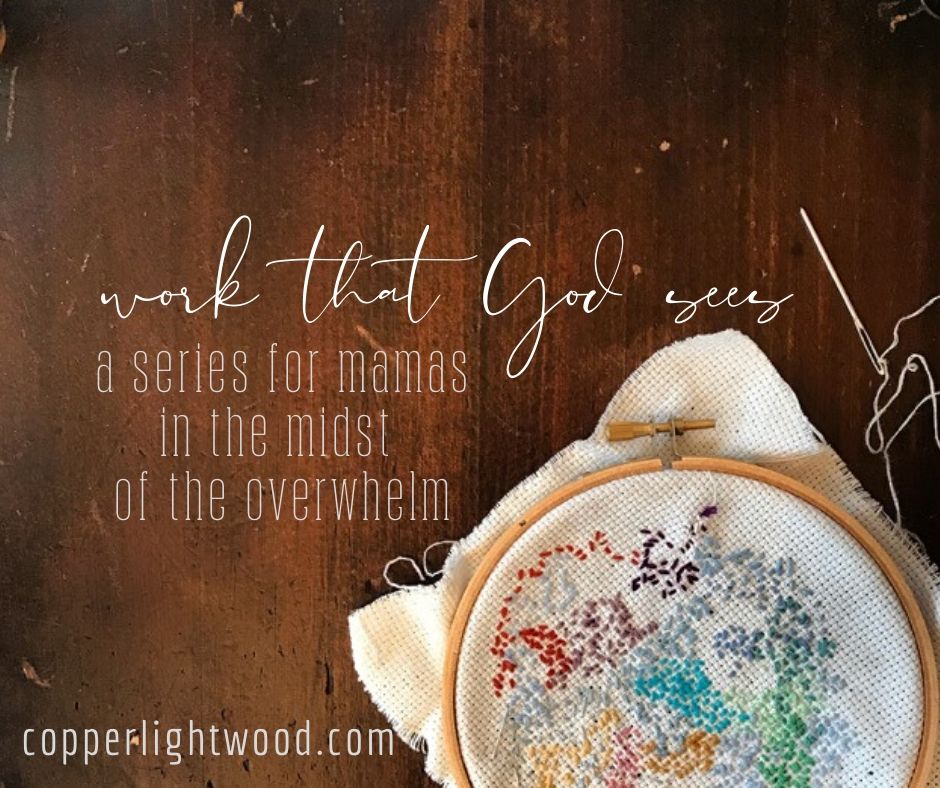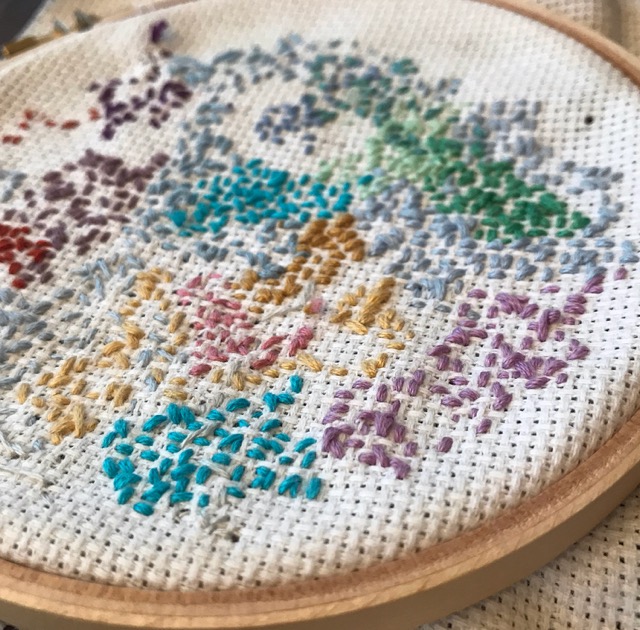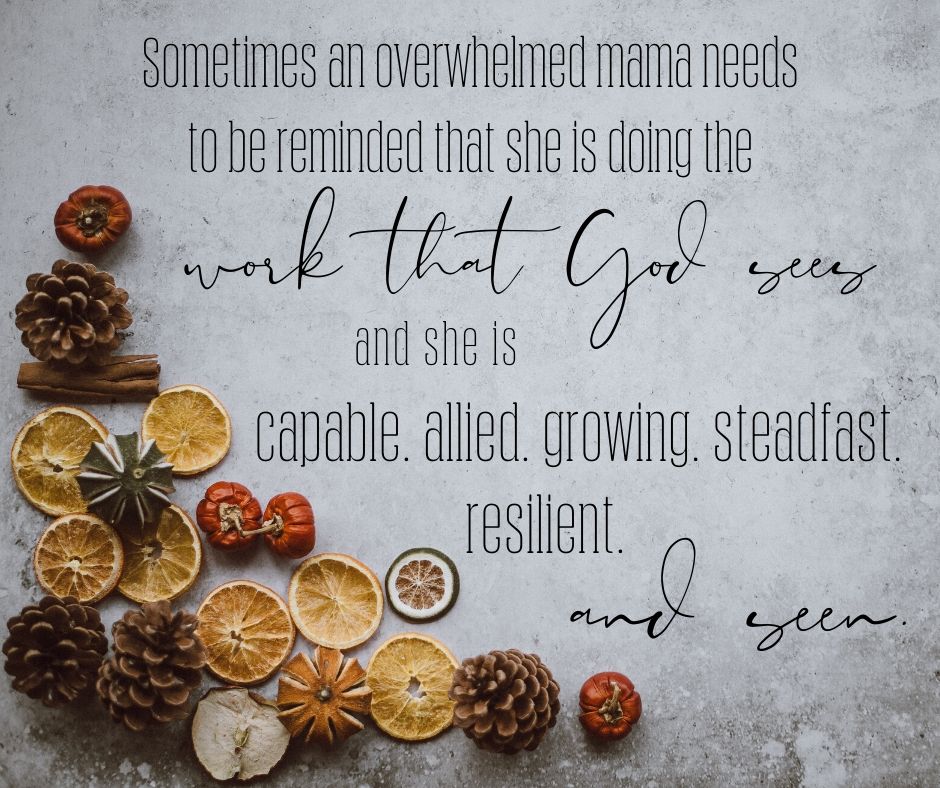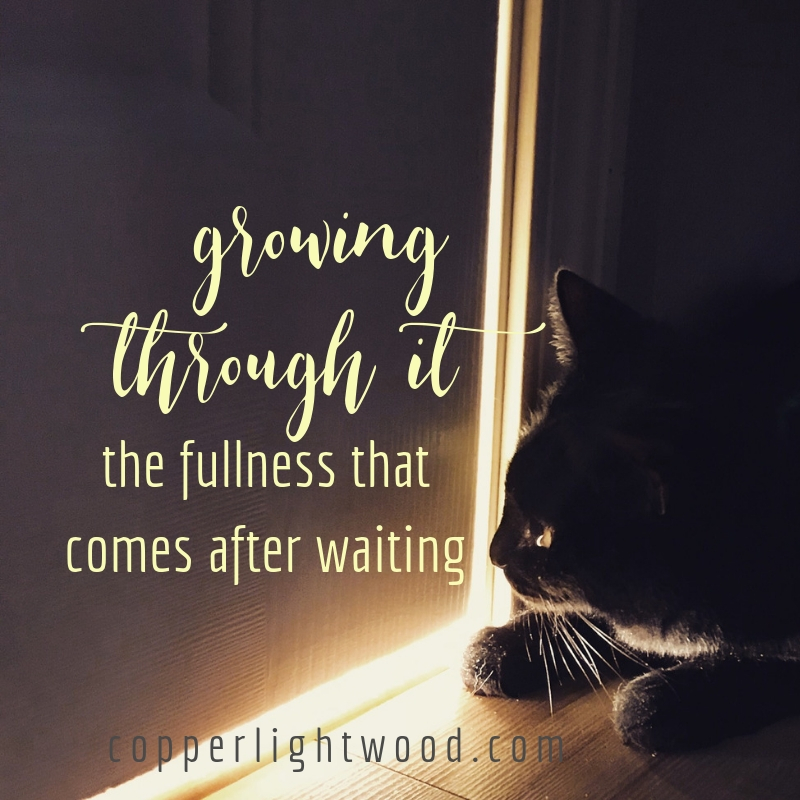Kavanagh napping. Finn playing sweetly, but he’s loud enough to trigger neighborhood car alarms. Vin and I bossing him. Baby waking up after a refreshing 90-second power nap. Repeat until dinnertime.
And this, at least, has not changed in eighteen years of parenting – only then, it was two different kids who are both now in high school, and we are now old…er. Older. Oldish? Whatever. You get it.
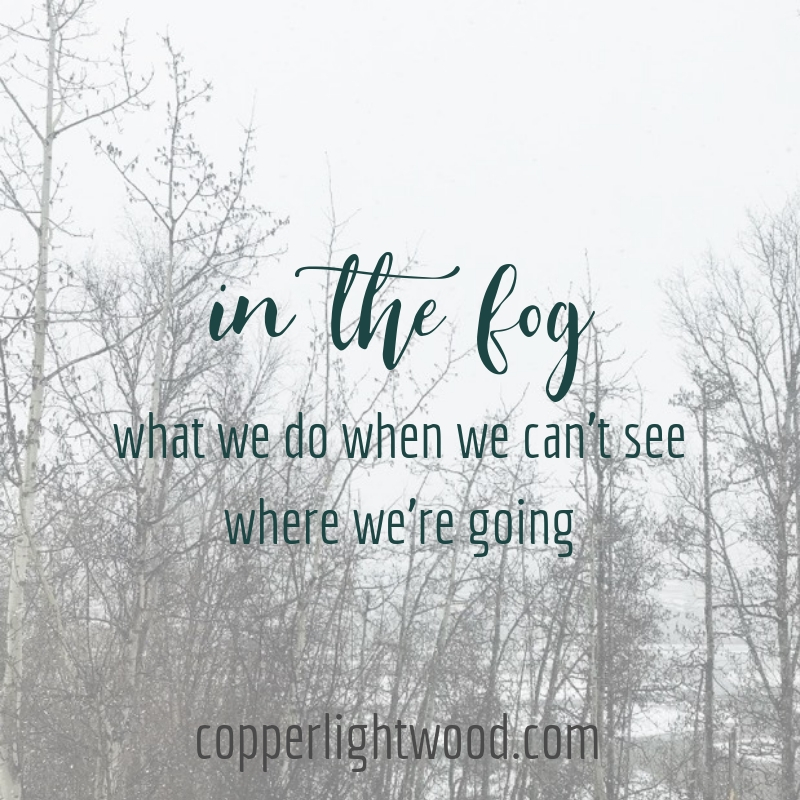
It is a night for an easy dinner after a day of not getting nearly enough done and cringing from loud noises. Leftover pasta, leftover salad; sauté some broccoli to go over the top and give myself something to be proud of. Because somedays feel like nothing to be proud of.
Not enough time for everyone and everything. Heaviness in the chest. A sense of swelling behind the eyes that hints at tears, but no thank you, we don’t want that, we don’t have time for that. In this season, ain’t nobody got time for that.
I know what it is. It feels a little like PMS but it isn’t – it’s spiritual attack threatening to spiral into depression, the barrage of lies that shout failure from the rooftops in every area. Loud noises on the outside spike against the loud thoughts inside. The body hurts, the mind and spirit hurt.
And I can be a slow learner, but now I know the drill when it hits: Do the small things, the necessary things that fight the lies and the feelings and the oversensitive body processes.
Drink a glass of water. Take a dose of vitamin D. Rebuke the lie.
And find something easy to clean.
People sometimes seem surprised at how (relatively) clean our house is in spite of seven kids living here, and usually the credit goes to regular chores and a highly efficient husband. But every once in a while it’s something else entirely.
Every once in a while, the house is clean because the mama almost lost her ever-loving mind but narrowly escaped by taking it out on the kitchen.
Because order on the outside helps bring order to the inside.
And wiping down counters is easy, so much easier than the stressful intangibles that have no end. Clean counters help bring sanity and white space.
I cannot clean everything. Just like I cannot do everything. But I can clean this counter in front of me, and see the difference.
In so many areas, we can believe and hope and trust that what we do matters, but we cannot see it yet and the enemy takes advantage of that.
So doing something that we can see is important. It becomes prayer and prophecy; we see movement and change and impact. A clean counter can represent so much more as we pray.
The edge of the sink is covered in coffee grounds and water droplets. One wipe, and it’s clean. Perfect. Rinse the sponge. Done.
There’s a clear before-and-after here, unlike most of the other work with words, and situations, and people. And my own attitude.
For many of us it’s a season of refining, pressing further than we thought we could go, pushing through pain, taking maturity to the next level. And it hurts, like a muscle being strengthened.
We are refining character and relationships, habits, skills, and communication, for a great plan ahead that we cannot see, praying for rain but not yet seeing the cloud the size of a hand.
He sees what we cannot see – and sometimes, often, He lets us see these things for each other.
A close friend of ours had a surprise party last week. She was blindfolded; she didn’t know where she was going, or when she would arrive. But we knew, and we couldn’t wait for her to get there.
…As Christians, we will always live in tension between what we understand and what remains a mystery….We cannot afford to live only in what we understand because then we don’t grow or progress anymore; we just travel the same familiar roads we have traveled all of our Christian life. It is important that we expose ourselves to impossibilities that force us to have questions that we cannot answer.
– Bill Johnson, The Supernatural Power of a Transformed Mind
In the deep searching, trusting God when it feels like you have no choice but to trust Him (and is that really trust at all?) we’re pressed into voicing those gut-honest questions – the ones He’s not afraid of, but that we’re usually afraid to ask.
These questions lay us open, vulnerable to legalistic blind spots in our past, and the enemy hisses things like, If you really trusted God, you wouldn’t feel that way/need to ask that question/feel so uncertain. We think that Really Good Christians are supposed to find some kind of bliss in the pressure of not knowing, but that’s only because the enemy is liar.
Fire tests the purity of silver and gold, but the LORD tests the heart.
– Proverbs 17:3, NLT
God knows these seasons are not easy. He’s not mad at us for feeling the fire and asking the hard questions.
He’s not mad at us when we ask repeatedly for the cloud the size of a hand.
He’s right there with the truth – He knows the destination, and these questions are the sweet spot, the brave willingness to stare fears in the face and name them aloud, willing to surrender those fears to Him.
Here’s the root of it: If it really is that bad and our fears come to pass, will we still trust Him? Will we still talk to Him?
Of course we will. There is no one left. He is the only one who knows how to take us where we’re supposed to be going. Regardless of what the weather or the circumstances look like, He is rubbing His hands in anticipation, leaning forward, telling us, Just wait, you’re going to love this. I can’t wait to show you where you’re going.
Those who fear You shall see me and rejoice, because I have hoped in Your word.
– Psalm 119:74
And these curveballs, these situations of unknowing, and what-in-the-world-are-You-doing, prove that surrender is beautiful, and powerful, and victorious, and He knows what we want better than we do. He’s not afraid to give it to us, even when we’re afraid to ask for it or take it.
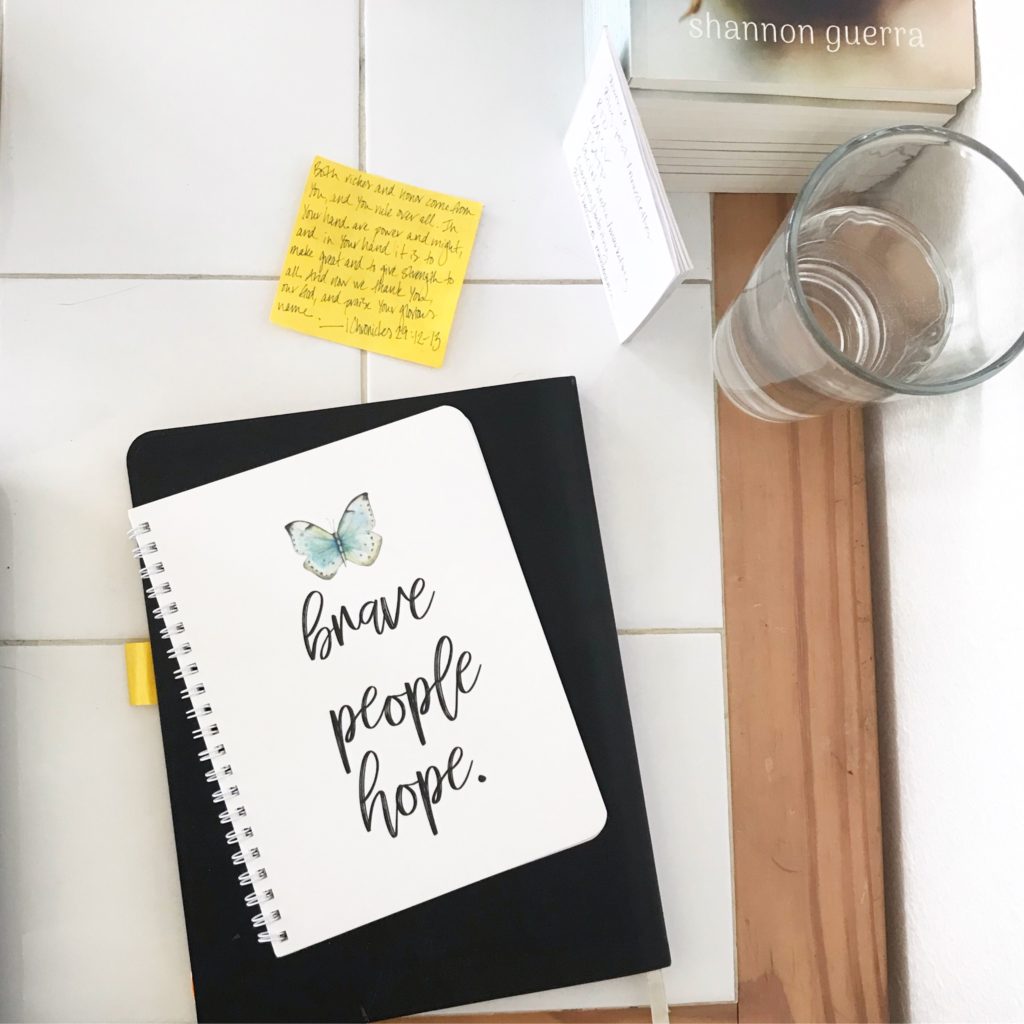
The unknowing and waiting are a lot like writing. Here too, we usually do not know where we are going:
At its best, the sensation of writing is that of any unmerited grace. It is handed to you, but only if you look for it. You search, you break your heart, your back, your brain, and then – and only then – it is handed to you. From the corner of your eye you see motion. Something is moving through the air and headed your way.
….You find and finger a phrase at a time; you lay it down cautiously, as if with tongs, and wait suspended until the next one finds you: Ah yes, then this; and yes, praise be, then this.
– Annie Dillard, The Writing Life
Bread crumbs from lunch cover the island. Scoop them into my hand, throw them off the deck for the birds, or maybe the mice, but with four cats I’m not worried. Easy, done. Moving on.
It’s hard to see outside of ourselves from the chaos and stress – it presses in, closing in on us just like the fog around the windows, obscuring mountains, neighbors, and the river of traffic going up and down the highway.
We ask for a cloud the size of a hand, and in perfect time He sends the fog rolling in, pressing us into questions and answers and growth we could not or would not have pursued otherwise. And sometimes in our own density, we don’t recognize that that, too, is an answer.
________________________
This is an excerpt from Work That God Sees .
